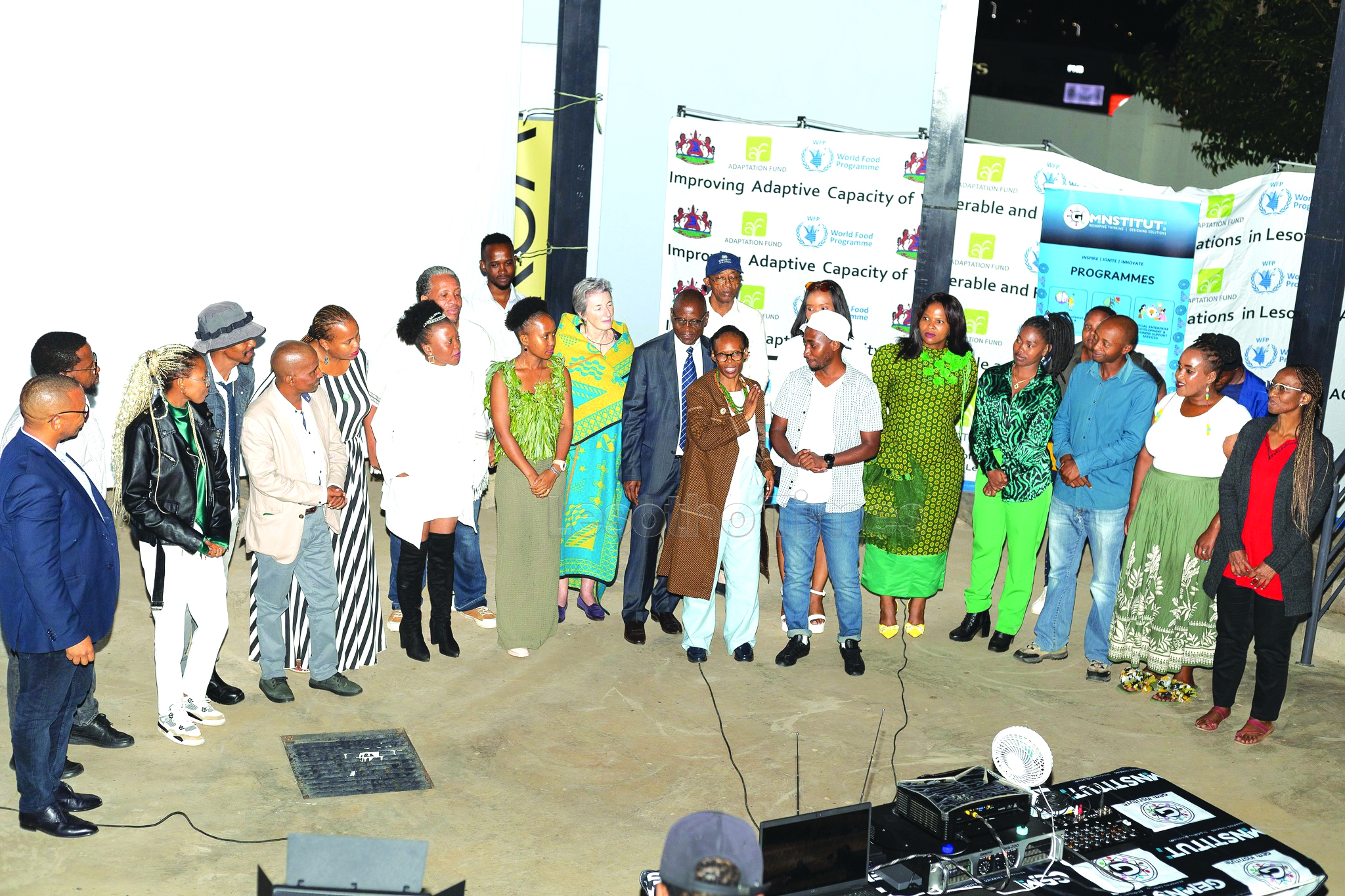Mathatisi Sebusi
THE new film, Echoes of Change, has been released in an effort to communicate climate change information innovatively and ensure it reaches diverse audiences.
This project is a collaboration amongst the Ministry of Environment and Forestry, the World Food Programme (WFP) under its project, Improving Adaptive Capacity of Vulnerable and Food-Insecure Populations (IACOV), and the GEM Institute.
The film aims to enhance the National Climate Change Communication Strategy by using creative platforms. It presents a compelling narrative about the challenges and opportunities faced by communities in Lesotho as they adapt to climate change. It also highlights their resilience and innovative approaches to building climate resilience.
Released last week, the film seeks to educate communities about climate change and promote behavioural changes needed to achieve resilience. It underscores the impacts of climate change that many Basotho are already experiencing, including food shortages and the spread of diseases.
IACOV Project Manager, Nkopo Matsepe, told the Lesotho Times that films play a fundamental role in educating and advocating for actions against climate change. He said the government, through the Ministry of Environment and Forestry, has successfully developed documentary and advocacy products addressing climate change, natural resource management, and nutrition.
“We are living in the midst of a climate crisis that affects not only Lesotho but the entire globe. The climate change film, produced by the GEM Institute, will be distributed to communities across the country to ensure they are well-informed about climate change issues,” Mr Matsepe said.
Lesotho Meteorological Services Director, Mokoena France, commended the innovative advocacy, noting that while developing the National Climate Change Communication Strategy, he advocated for using diverse platforms such as films, podcasts, videos, comedic clips, and voice notes to convey climate change information.
“The way we communicate climate change messages is as important as the message itself. We cannot effectively reach our audiences if we focus solely on the message and neglect how it is delivered. The film is an innovative method uncommon in Lesotho. We are also exploring other avenues, such as sports, to disseminate the message,” Mr France said.
The IACOV project is structured around three main components. The first focuses on strengthening government capacity to generate climate information, forecast climate shocks, mobilise early actions, and co-develop tailored and locally relevant climate services for communities.
The second concentrates on raising community awareness, targeting women, youth, people living with HIV, and other vulnerable groups. It highlights the impacts of climate change, the importance of adaptation, and the use of climate information for seasonal planning and climate risk management.
The third component empowers communities to understand community-based planning processes that facilitate resilience-building and adaptation interventions, generating sustainable assets, ensuring income diversification, and enabling market access.

